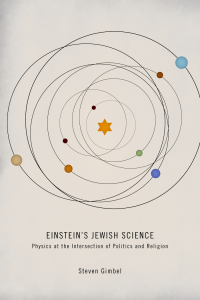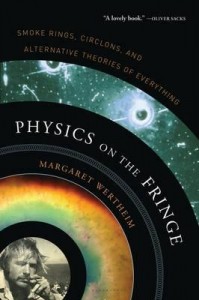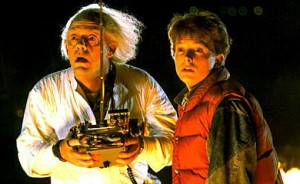 Einstein’s Jewish Science: Physics At The Intersection Of Politics And Religion
Einstein’s Jewish Science: Physics At The Intersection Of Politics And Religion
Steven Gimbel, Johns Hopkins University Press, 2012
This review originally appeared in COSMOS Magazine.
We might not like to admit it, but scientific discovery doesn’t occur in a vacuum.
Cultural factors can muddy the waters or move things along – as was the case for Copernicus and Newton, who were both inspired and stymied by their respective churches. And the Nazis waged a campaign against ‘Jewish science’, with Einstein being public enemy number one in this regard.
But was there really anything Jewish about Einstein and his work? Steven Gimbel explores how religion, politics and philosophy might have influenced Einstein’s theory of relativity – and (perhaps more importantly) how the now-famous theory affected those fields in turn.
There are conflicting answers to the religion question with Einstein, a cultural but not a practising Jew (a distinction well explained in the book for those unfamiliar with it). The politics may be better known, but Gimbel sensitively handles the confronting stories of the lives and scientific careers destroyed by the Nazis.
Physics is far from being dry science, but throughout history has been a crucial tool used to determine humanity’s place in the universe. Whether there is such a thing as objective truth, and whether we can ever know it, are quandaries informed heavily by physics.
Gimbel’s explanations of physics are clear enough for non-experts to understand, to the extent that I found the philosophy more challenging material. For anyone interested in the history and philosophy of science, this book is well worth reading to its delightful conclusion.


